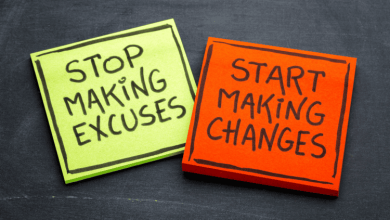How to Make a Self-Care Checklist That Actually Works for You .

Master your well-being with a self-care checklist. Boost mental, physical, and emotional health effortlessly.
Spend any time on social media, and it’s easy to get the impression that self-care is all about bubble baths, cappuccinos, and champagne — but it’s so much more than that. Read this article to learn more about self-care and how a checklist can help you ensure you make time to take care of yourself.
Why create a self-care checklist?
Practicing self-care can serve as a way for you to check in with how you’re feeling, look after your health, and even prevent burnout.
Some reasons you may want to create a self-care list are to:
- Actively prioritize self-care in your life. By writing a list, you create a reminder to take time for yourself and your well-being.
- Reduce stress and burnout. Introducing self-care activities into your routine can help alleviate stress and even prevent burnout. This list can make sure you have a variety of options to choose from when you need to recharge.
- Enhance mental well-being. Self-care activities can have a positive impact on your emotional and mental well-being. These activities allow you to nurture yourself, practice self-compassion, and learn how to manage your emotions.
- Improve physical health. Your self-care list can include activities like exercising, eating healthy meals, and getting enough sleep. All of these activities can contribute to improving your physical health.
- Boost productivity. When you take regular breaks for self-care activities, you can actually enhance your productivity and focus.
Create a daily self-care checklist.
There are many forms of self-care, and different people will find different activities beneficial. To some, it can be taking a long walk or curling up with a good book. To others, it might mean getting finances in order and paying bills on time.
When creating your own daily self-care list, start by creating a to-do list online or on paper, then write down or brainstorm activities you find meaningful or helpful.
To help you get started, here are just some ideas for practicing self-care:
- Wake up without hitting the snooze button.
- Drink eight glasses of water daily.
- Eat healthily.
- Find ways to move (dance, stretch, go for a walk).
- Commit to learning one new thing a day.
- Create a bedtime ritual.
- Get enough sleep.
Create a mental health self-care checklist.
Taking care of your mental health is a priority when it comes to overall well-being and happiness. By creating a mental health self-care list, you can effectively check and track that you are, in fact, prioritizing your mental health by incorporating activities and habits that help you reduce stress and improve your emotional resilience.
Below are some ideas of items you can add to your mental health self-care checklist:
- Start your day with meditating, journaling, or breathing exercises.
- Read a book.
- Schedule quality time with friends or family.
- Spend time outdoors.
- Tidy up your space.
- Reduce screen time after 9pm.
- Limit exposure to social media or negative news.
- Volunteer or engage in acts of kindness.
- Rely on your support group, like friends and family.
Examples of a self-care routine checklist.
Now that you have some ideas of what to include in a general self-care checklist or a mental health-focused one, you can create your own self-care routine checklist.
These checklists will help you develop some daily habits for when you wake up in the morning and right before you go to sleep.
Morning self-care routine checklist.
- Wake up without immediately looking at your phone.
- Drink a glass of water to rehydrate your body.
- Stretch or exercise lightly.
- Practice five minutes of mindfulness or meditation to cultivate a sense of calm.
- Prepare and eat a healthy breakfast to have energy for the day.
- Practice personal hygiene by brushing your teeth and showering.
- Set your goals for the day.
Night self-care routine checklist.
- Disconnect from electronic devices so your body can wind down.
- Practice relaxation techniques such as breathing exercises or gentle stretching.
- Create a relaxing environment in your bedroom by turning on some relaxing music and dimming the lights.
- Avoid heavy meals and caffeine as they can interfere with your sleep quality.
- Practice personal hygiene by brushing your teeth and changing into comfortable clothes.
- Journal, read a relaxing book, or apply your skincare routine.
Once you’ve taken the time to create your own daily checklist, you can tape it inside a journal or convert the checklist to a PDF so you can easily view it on your computer or mobile device.
Either way, it’s helpful to place it somewhere highly visible so you can gain inspiration every day.



